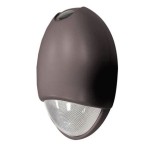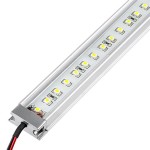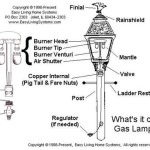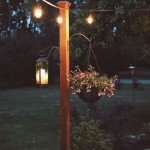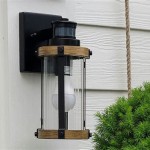Lightweight Outdoor Steps: A Practical Guide
Outdoor steps are essential for navigating uneven terrain, providing access to elevated areas, and enhancing the safety and usability of outdoor spaces. However, traditional materials like concrete and stone can be heavy and difficult to install, particularly in areas with limited access or where ground disturbance needs to be minimized. Lightweight outdoor steps offer a practical alternative, combining portability, ease of installation, and durability to create safe and accessible pathways. This article explores the various types of lightweight outdoor steps, their advantages, considerations for selection, and optimal applications.
The term "lightweight" in this context refers to steps constructed from materials that are significantly lighter than traditional options, allowing for easier handling and transportation. These steps are often prefabricated or modular, meaning they can be assembled on-site with minimal tools and expertise. This significantly reduces installation time and labor costs compared to building traditional steps from scratch. The reduced weight also minimizes the impact on the surrounding environment, particularly in delicate ecosystems or areas prone to erosion.
Understanding the Benefits of Lightweight Materials
The primary advantage of lightweight outdoor steps lies in the materials used in their construction. Several different materials contribute to reduced weight while maintaining structural integrity and weather resistance. These include:
*Aluminum:
Aluminum is a popular choice due to its high strength-to-weight ratio, corrosion resistance, and recyclability. Aluminum steps are often powder-coated for added protection and aesthetic appeal. They are suitable for both residential and commercial applications and can withstand heavy foot traffic. *Composite Materials:
Composites, such as fiberglass reinforced plastic (FRP) and recycled plastic lumber, offer excellent durability and weather resistance. FRP is particularly strong and lightweight, making it ideal for steps that need to withstand significant loads. Recycled plastic lumber is an environmentally friendly option that mimics the appearance of wood without the risk of rot or insect infestation. *Steel (Light Gauge):
While steel is generally heavier than aluminum, light gauge steel can be used in conjunction with other materials to create lightweight step structures. Steel provides structural support and can be treated to prevent rust and corrosion. *Treated Wood:
While wood can be heavier than aluminum or composites, using treated wood ensures longevity and resistance to rot and insect damage. Proper treatment is crucial for wood steps to withstand the elements. Often, a lightweight frame of metal is used to support the wood treads.These materials contribute to the overall lightweight nature of the steps, facilitating easier transport and installation compared to traditional stone or concrete steps.
Types of Lightweight Outdoor Steps
Lightweight outdoor steps come in various configurations to suit different needs and site conditions. Understanding the different types available is essential for selecting the best option for a particular application.
*Modular Steps:
Modular steps are pre-fabricated units that can be easily assembled to create a staircase of desired height and length. These steps are often made from aluminum, composite materials, or a combination of both. They are highly versatile and can be used in a wide range of applications, from deck access to garden pathways. Modular steps typically come with adjustable feet to accommodate uneven ground surfaces. *Platform Steps:
Platform steps consist of a single, wide step that provides a small elevation change. They are commonly used to overcome small obstacles or to create a transition between different levels. Platform steps are available in various sizes and materials, including aluminum, composite, and treated wood. These are especially useful for accessibility. *Adjustable Steps:
Adjustable steps are designed to adapt to varying heights and terrains. They typically feature telescoping legs or adjustable platforms that can be raised or lowered to achieve the desired level. Adjustable steps are particularly useful in temporary installations or in areas where the ground is prone to shifting. *Folding/Portable Steps:
Folding or portable steps are designed for temporary use and easy storage. They are often made from lightweight aluminum or steel and can be easily folded and transported. These steps are ideal for accessing recreational vehicles, temporary construction sites, or other situations where a permanent staircase is not required. *Ramp-Step Hybrids:
For situations needing a combination of both ramp access and step functionality, hybrid units provide flexibility. These units may include a ramp section accompanied by shallow steps, allowing for both wheelchair accessibility and easier navigation for those who prefer steps.The choice of step type will depend on factors such as the required height, the available space, the intended use, and the site conditions.
Key Considerations for Selecting Lightweight Outdoor Steps
Choosing the right lightweight outdoor steps for your project requires careful consideration of several factors. Taking these factors into account will help ensure that you select steps that are safe, durable, and aesthetically pleasing.
*Load Capacity:
Determine the maximum load that the steps will need to support. This includes the weight of individuals using the steps, as well as any equipment or materials that may be carried up or down the stairs. Ensure that the selected steps have a load capacity that meets or exceeds your requirements. Exceeding the load capacity can lead to structural failure and potential injury and should be avoided at all costs. *Material Durability:
Consider the climate and environmental conditions in your area. Choose materials that are resistant to corrosion, rot, and UV damage. Aluminum and composite materials are generally more durable than wood in harsh environments. Saltwater environments require marine-grade aluminum or specialized composite materials to prevent corrosion. *Slip Resistance:
Ensure that the step surface provides adequate slip resistance, especially in wet or icy conditions. Look for steps with textured surfaces, non-slip coatings, or integrated traction strips. Consider steps with open grids to allow water and snow to drain through quickly. *Building Codes and Regulations:
Check local building codes and regulations to ensure that the selected steps comply with all applicable requirements. This may include regulations regarding step height, tread depth, handrail requirements, and accessibility standards. Failure to comply with building codes can result in fines or the need to remove and replace the steps. *Ease of Installation:
Consider your level of experience and the tools available to you. Choose steps that are easy to install and require minimal specialized equipment. Modular steps are often the easiest to install, as they simply need to be assembled and secured in place. Prefabricated systems reduce time spent measuring and cutting. *Aesthetics:
Select steps that complement the surrounding landscape and architecture. Consider the color, style, and finish of the steps to ensure that they blend in seamlessly with the existing environment. The visual appeal of the steps can significantly enhance the overall aesthetics of your outdoor space. *Maintenance:
Consider the level of maintenance required to keep the steps in good condition. Aluminum and composite materials typically require less maintenance than wood. Wood steps may need to be periodically stained or sealed to prevent rot and decay. Choose materials that are easy to clean and maintain. *Accessibility:
If accessibility is a concern, consider steps with shallow treads and sturdy handrails. Ramp-step hybrids can also be a good option for those with mobility limitations. Ensure that the steps meet ADA (Americans with Disabilities Act) guidelines for accessibility, if applicable.By carefully considering these factors, you can select lightweight outdoor steps that are safe, durable, and aesthetically pleasing.
The installation process for lightweight outdoor steps varies depending on the type of steps selected. Modular steps typically involve assembling the individual units and securing them to the ground with anchors or footings. Platform steps may simply need to be placed on a level surface. Adjustable steps require adjusting the legs or platforms to achieve the desired height. It is essential to follow the manufacturer's instructions carefully to ensure proper installation and safety.
Regular maintenance is essential to prolong the life of your lightweight outdoor steps. This may include cleaning the steps regularly to remove dirt and debris, inspecting the steps for signs of damage, and repairing any damage promptly. For wood steps, periodic staining or sealing may be necessary to prevent rot and decay. Following the manufacturer's recommendations for maintenance will help ensure that your steps remain safe and aesthetically pleasing for years to come.
Lightweight outdoor steps provide a practical and versatile solution for accessing elevated areas and navigating uneven terrain in outdoor spaces. They offer numerous advantages over traditional materials, including ease of installation, portability, and reduced environmental impact. By carefully considering the factors outlined in this article, you can select the best lightweight outdoor steps for your specific needs and site conditions.

Rocksteps Lightweight Stone Steps Stairs Landscape Design Supplies Solutions

Lightweight Stone Steps Stairs Landscape Design Supplies Solutions Outdoor

Good Ideas Sora Steps Lightweight Outdoor Indoor Storage Step Light Granite Com

Lightweight Concrete Pavers Steps Landscaping

Good Ideas Sora Steps Lightweight Outdoor Indoor Storage Step Light Granite Com

Good Ideas Sora Steps Lightweight Outdoor And Indoor Storage Step Sandstone Sstep San The Home Depot

Good Ideas Sora Steps Lightweight Plastic Outdoor Indoor Storage Step Gray Com

Good Ideas Sora Steps Lightweight Outdoor Indoor Storage Step Dark Granite For

Evelots Mobility Half Step Indoor Outdoor Sy Lightweight Nonslip L

Good Ideas Sora Steps Lightweight Plastic Outdoor Indoor Storage Step Black Sstep Blk The Home Depot
Related Posts

